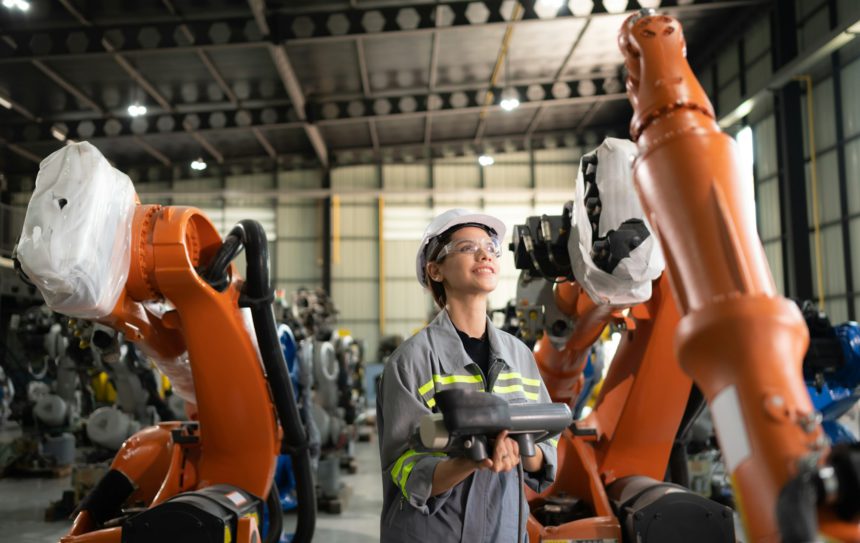Robotics has become an integral part of our lives and has had a significant impact on industry and everyday life. With every technological breakthrough, robots become more sophisticated and more capable of performing complex tasks. But how will these robots change our industry and our daily lives?
The impact of robotics on industry and everyday life
Robotics has brought a revolution to industry, enabling process automation and efficiency growth. Robots can be programmed to perform repetitive and dangerous tasks, thus eliminating the risk to workers and reducing human errors. Robots can also work uninterruptedly, without the need for breaks or rest, which leads to faster and more constant production.
In the manufacturing industry, robots can assemble products with incredible precision and speed, leading to an increase in quality and productivity. Of a kind similar to that of a kind used for the transport of goodsa, robots can be used in areas such as agriculture, medicine and construction, where they can carry out difficult and dangerous tasks for people.
In addition to the impact on industry, robotics also has a significant impact on everyday life. Now we have cleaning robots that can vacuum and wash floors, kitchen robots that can cook and company robots that can offer company and help for elderly or disabled people. These robots make our lives easier and more comfortable, freeing us from domestic tasks and giving us more free time.
Way to the Future: How robots will influence us in every aspect of our lives
As technology advances, robots are expected to influence us more and more in every aspect of our lives. In the future, we can expect robots to be present in all fields, from education and health to transport and entertainment.
In the field of education, robots can be used to support the learning process, providing explanations and personalized exercises for each student. Robots can also be used in physical therapy and in medical recovery, helping patients regain mobility and improve their health.
In the field of transport, robots can be used to drive autonomous cars and to ensure safety and efficiency in traffic. Robots can also be used in the field of entertainment, providing us with unique and exciting experiences in video games or amusement parks.
Robotics: Transforming industry and everyday life through advanced technology
Robotics is really an advanced technology that transforms our industry and our daily lives. With every new innovation in the field of robots, we are witnessing a significant changein the way we work, live and interact.
In industry, robots are able to perform complex tasks and work with people, which leads to increased productivity and efficiency. Robots can also be used to reduce costs and improve product quality.
In everyday life, robots help us save time and enjoy more comfort. From cleaning and kitchen robots to entertainment and company robots, these robots make our lives easier and more satisfying.
How robots will revolutionize our daily industry and routine
The robotic revolution is already in full swing and it is only a matter of time before robots will revolutionize our daily industry and routine completely. With every new innovation and technological advancement, robots become more and more capable and efficient.
In industry,robots will take on more and more tasks, from assembly lines to customer relations services. This will lead to increased productivity and lower costs, but will also have an impact on the human labour force, raising questions and challenges about jobs and adapting to technological change.
As for our daily routine, robots will become more and more present in our homes, helping us to manage household chores and offer us company. From cleaning and kitchen robots to virtual assistants and entertainment robots, these robots will be an integral part of our lives and will provide us with an easier and more satisfying life.
In conclusion, robotics has a significant impact on industry and everyday life. These sophisticated and increasingly technologically advanced robots bring with them a number of benefits, but also pRobocations. It is essential that we understand and adapt to this robotic revolution in order to benefit from all the advantages it brings.
